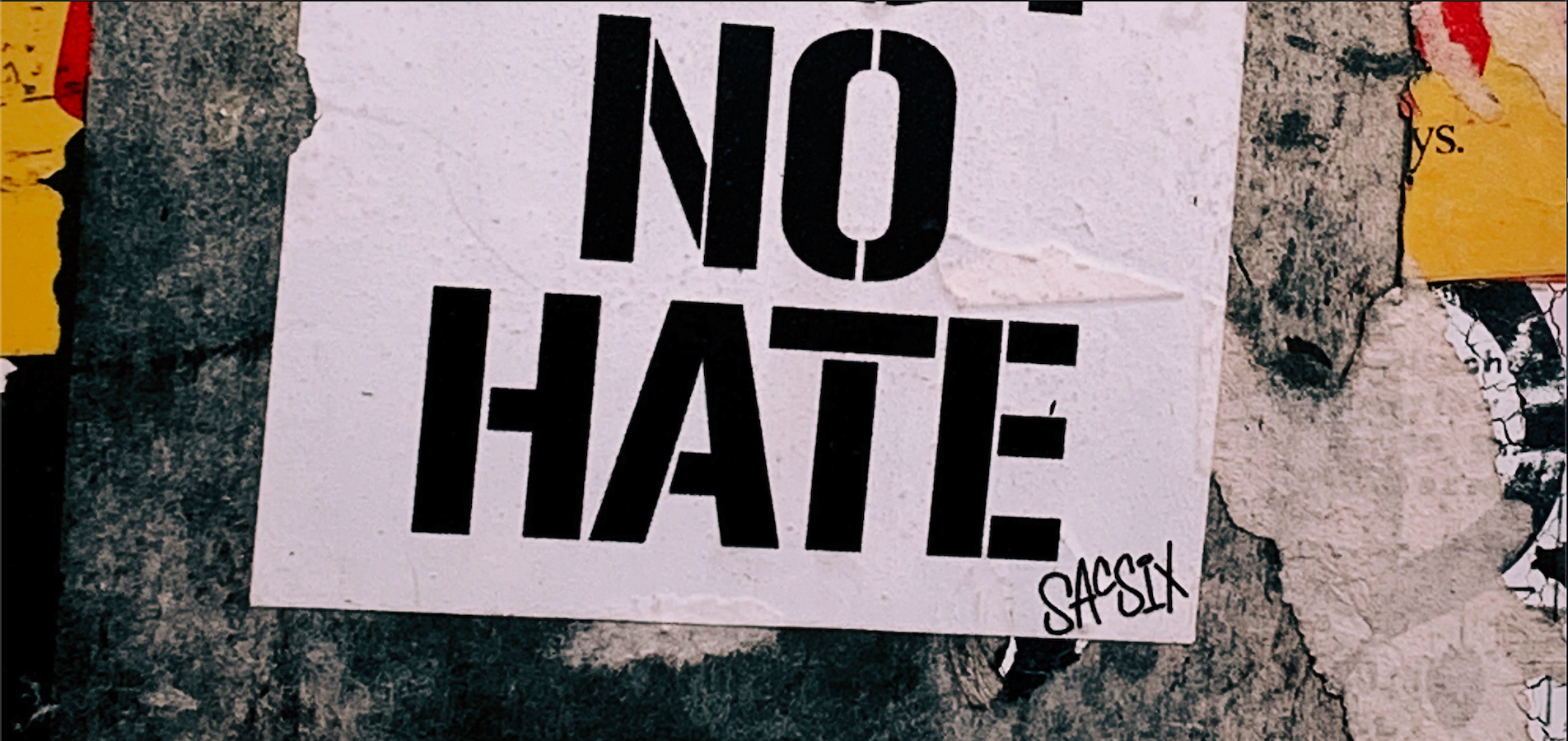
Over-Sensitivity To Anti-Semitism Hurts More Than It Helps
In the past year, dozens of high profile comments worldwide have been called “anti-Semitic.” While labeling them this way may discourage the speaker from using similar rhetoric in the future, that isn’t always the case.
Additionally, not every act of violence, teasing or, hate against Jews is the same in intent or outcome. In the classic fable of “The Boy Who Cried Wolf,” the boy loses the trust of the community that would usually come to his aid. He is eventually eaten by an actual wolf. Without a conclusive definition as to what counts as anti-Semitic, the term could lose its meaning, inadvertently distancing us from those who would have stood in our defense and potentially making us more vulnerable to legitimate threats.
What types of comments and actions should be seen as truly anti-Semitic and which should be viewed as merely insensitive? Further, what, if anything, can be done by Jewish people to stop the proliferation of anti-Semitic rhetoric and action?
The International Holocaust Remembrance Alliance proposes that a wide variety of actions can qualify as anti-Semitic, ranging from the obvious “calling for, aiding, or justifying the killing or harming of Jews in the name of a radical ideology or an extremist view of religion,” to the overly-broad “making…stereotypical allegations about Jews as such or the power of Jews as a collective.” While we can clearly agree on the first criteria, the second definition has the potential to do more harm than good.
Irshad Manji, author of “Don’t Label Me: An Incredible Conversation for Divided Times,” a new book about diversity, bigotry and our common humanity, said that “schools should be teaching students [how to]…not tak[e] offense at everything.” When people in the media engage in stereotyping, we can engage with that entity directly instead of writing them off. Manji points out that, “we grow by engaging those with whom we disagree. When we take offense, we’re in a reactive mode, and we miss opportunities to ask people why they believe what they do.” She asserts that, “giving and taking offense is the price of diversity, not the impediment to diversity.”
Abe Foxman, the former National Director of the Anti-Defamation League said that he will “often seek out the individual for a personal conversation in which I can have an opportunity to better understand where he or she is coming from, what was intended by the offensive words or deeds, and whether they reflect true bigotry and hatred or, as is often the case, simple ignorance, carelessness, or a momentary lapse in judgment.”
Manji and Foxman both understand the possible positive sides in engaging with those who promote negative stereotypes. When we use “Anti-Semitic” to describe something that is not directly calling for or justifying harm against Jewish people (or using dehumanizing language, such as describing Jews as vermin or attributing supernatural powers to Jews – both beyond reason and therefore pointless to discuss) we will cut off the opportunity to engage with the stereotypes and show a different way of looking at the issue.
A more objective definition of anti-Semitism may be found in Jewish texts. The Haggadah warns that one thing we will always share with previous generations of Jewish people is that “it is not just one individual [Pharaoh] who rose up to annihilate us, but in every single generation, people rise up against us… and the Holy One, Blessed is He, saves us from their hands.”
This may seem like a gloomy prediction, but upon a closer look, it contains two promises- that others will rise nup to try and destroy us and that Hashem will save us from them. From a very basic view of the text, it would seem that we should generally never worry about anti-Semitism. The Haggadah seems to imply that If people start acting anti-Semitic, Hashem will save us! No problem! This erroneous conclusion is taken to task by the Maharal. “Why would the Jewish people fear anti-Semitism, G-d promised that Yaakov (and the Jewish people) will be safe! Why then, do we see that Yaakov is afraid of meeting Esav (the archetypal anti-Semite)? He was fearful that he was now vulnerable to attack based on his sins.”
The Maharal holds up a mirror to the Jewish people and says “If anti-Semitism is happening, take a look at the spiritual health of the Jewish people.” If Jews are not acting out their purpose in the world, the nations around us may attack us on unrelated grounds in order to remind us of our purpose. Anti-Semitism is, according to the definition we’ve just seen, a response to Jewish laxity in connection with G-d and observance.
Claiming that Jewish apathy or wrongdoing is the cause of anti-Semitism is usually classified as “victim blaming,” and rightfully so. Righteous people have died or lived under persecution in the history of anti-Semitism. The problem becomes more complex when we realize that anti-Semitism can also crop up for the opposite reason. Hitler, the modern day incarnation of the archetypal nation Amalek, said that “The Jews have inflicted two wounds on mankind – circumcision on its body and conscience on its soul. They are Jewish inventions…I am freeing humanity from the shackles of the soul, from the degrading suffering caused by the false vision called conscience and ethics…The struggle for world domination will be fought entirely between us, between the Germans and the Jews. All else is façade and illusion.”
The Talmud predicted this type of statement 2000 years ago when they asked “Why is it that the mountain on which the Torah was given is called Sinai? Because hatred (sinah) for the Jews descended upon the Gentiles.” The imposition of an objective moral system is another root for hatred of Jewish people.
We can begin to see anti-Semitism for what it really is- an irrational premise. We are paradoxically hated both for the imposition of a moral system and also for individual lapses in following that moral system. We are hated as brutal capitalists and as subversive communists, we are hated as moral purists and as degenerate cultural renegades. Jew-hatred is unavoidable and today, in many countries in the West, hundreds of thousands of enlightened Christians, Muslims, and atheists have joined us in understanding the incoherence and deadly destructiveness of the anti-Jewish bias.
For this reason, I propose that the incitement or justification of discrimination or violence against Jewish people (as well as dehumanizing language) are the only true forms of anti-Semitism. Those who push this hateful rhetoric should be ignored and denounced. They are living out the promise of the Torah that there will always be someone to rise up and destroy us in every generation. The rest may be hurtful, but it is worth engaging with, even if the conclusion is less than satisfying. If we do not engage with it, we may lose the valuable allies we have gained through mutual understanding.
How can we respond to Jewish stereotypes calmly and seriously? First, protect yourself. If a person is threatening or justifying harm, they are not worth engaging with as they or someone they know may become a direct threat to you or your family. Once you’ve determined that they are not threatening harm, engage individually and try to help them understand that there are many Jews who are not guilty of the stereotype they see, and that sometimes, stereotypes in the hands of people with lower inhibitions lead to violence against Jewish people.
Secondly, recognize that anti-Semitism is an external symptom of an internal problem. This Catch-22 has a refreshing solution- let people see what living morally looks like. Be the person who is honest in business when it would have been easy not to be. Go back to the cashier and say “I think you gave me too much change!” You’ve just shown the world that Judaism is not just about living morally, but making that morality beautiful.
All of humanity is created in the image of G-d. If we live morally and show that morality to be beautiful, people will be attracted to it and their false perceptions will fall away.
If we reserve the term anti-Semitism for cases of someone calling for or legitimizing harm against Jewish people, we free it for when its really needed. Other statements that portray a stereotype should be engaged with as the cost of living in the diaspora. The cost of calling out “Anti-Semite!” or “Jew hater!” too often is that those who would be our allies begin to feel that we’re just looking for a fight around every corner, when in reality, every anti-Semitic comment should be a reminder to us that our work in serving Hashem and bringing a G-dly morality down to Earth is not yet completed. The cost of engaging with those who promote stereotypes is far lower, and the returns for that investment of time and patience are far greater- allies, increased ingroup unity, and a sense that we are heard and understood by those around us.
If you found this content meaningful and want to help further our mission through our Keter, Makom, and Tikun branches, please consider becoming a Change Maker today.







